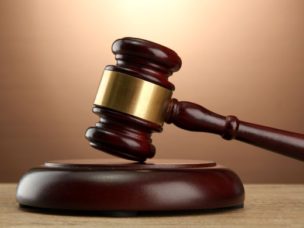Stay in the know
Subscribe to the Professional Liability Blog and we'll send you an email each time something new is posted.
Subscribe to the Professional Liability Blog and we'll send you an email each time something new is posted.
Blogs
Professional Liability Blog
To Err is Human . . . But May Not Always Cause Harm
 The practice of law is not an exact science. Even the Supreme Judicial Court has said that the “law does not demand that attorneys be perfect or infallible, and it does not demand that they always secure optimum outcomes for their clients.” Like doctors and other professionals who make judgment calls on a daily basis, attorneys will make mistakes. Whether a big mistake or a small mistake, an attorney is only liable for those that cause actual harm. By documenting the advice to the client on the risks and benefits of certain courses of action, an attorney may insulate herself from the repercussions of what the client ultimately decides to pursue.
The practice of law is not an exact science. Even the Supreme Judicial Court has said that the “law does not demand that attorneys be perfect or infallible, and it does not demand that they always secure optimum outcomes for their clients.” Like doctors and other professionals who make judgment calls on a daily basis, attorneys will make mistakes. Whether a big mistake or a small mistake, an attorney is only liable for those that cause actual harm. By documenting the advice to the client on the risks and benefits of certain courses of action, an attorney may insulate herself from the repercussions of what the client ultimately decides to pursue.
Why is causation so hard to prove? To start, the legal malpractice plaintiff is often the loser in the underlying lawsuit or the recipient of the short end of a settlement or transaction. The legal malpractice plaintiff has to prove that, but for the attorney’s negligence, he or she would have obtained a better result, e.g., prevailed in the underlying lawsuit or negotiated a better deal. The decision to take a case to trial, or to accept a settlement offer is the client’s and the best way for a lawyer to insulate herself from any liability for that choice is to fully document the pros and the cons of the choice presented as well as the risks. At the very least, a malpractice plaintiff will not be able to claim they did not know of the potential consequences of their choice.
Where a legal malpractice plaintiff was the plaintiff in the underlying case and lost, he would have the burden to prove that (1) he would have prevailed absent the attorney’s negligence, (2) he had damages; and (3) he would have been able to collect those damages from the defendant in the underlying case. Where a legal malpractice plaintiff was the defendant in the underlying case, however, and claims that his attorney failed to defend him, the attorney will have the burden of proving that his conduct did not cause the legal malpractice plaintiff’s loss. The rationale for this burden shifting is that the former defendant, now legal malpractice plaintiff, should not have to shoulder a burden of proof that he would not have had to shoulder in the underlying case. Indeed, the courts make quite clear that an attorney defending a malpractice action may not rely on the consequences of his own negligence to bar recovery against him.
The difficulty with malpractice claims based on a lost settlement opportunity or a bad deal is that the legal malpractice plaintiff is unlikely to obtain any testimony, let alone helpful testimony, from her opponent in the underlying lawsuit or transaction. To succeed on such a claim, however, the legal malpractice plaintiff must still present some evidence that the other side would have agreed to settle and what the terms of that settlement would have been. Expert testimony on causation is almost always necessary in this scenario, but these experts will undoubtedly be vulnerable to objections based on speculation.
Proving causation will always be an uphill battle for the legal malpractice plaintiff. Again, a lawyer can protect himself by documenting the advice about the risks and benefits of certain strategies and the client’s ultimate decision to pursue settlement, go to trial, or walk away. Ultimately, where the precise harm complained of was not the result of the attorney’s alleged negligence, but was a reasoned and informed choice by the client, there is no malpractice, regardless of the magnitude of the alleged mistake.



